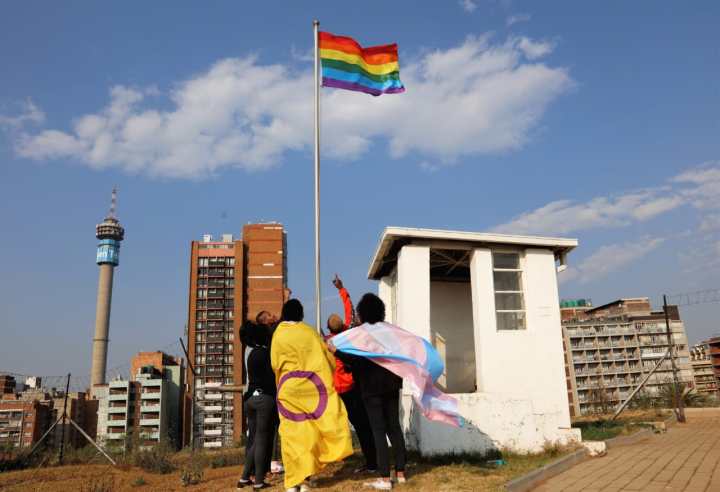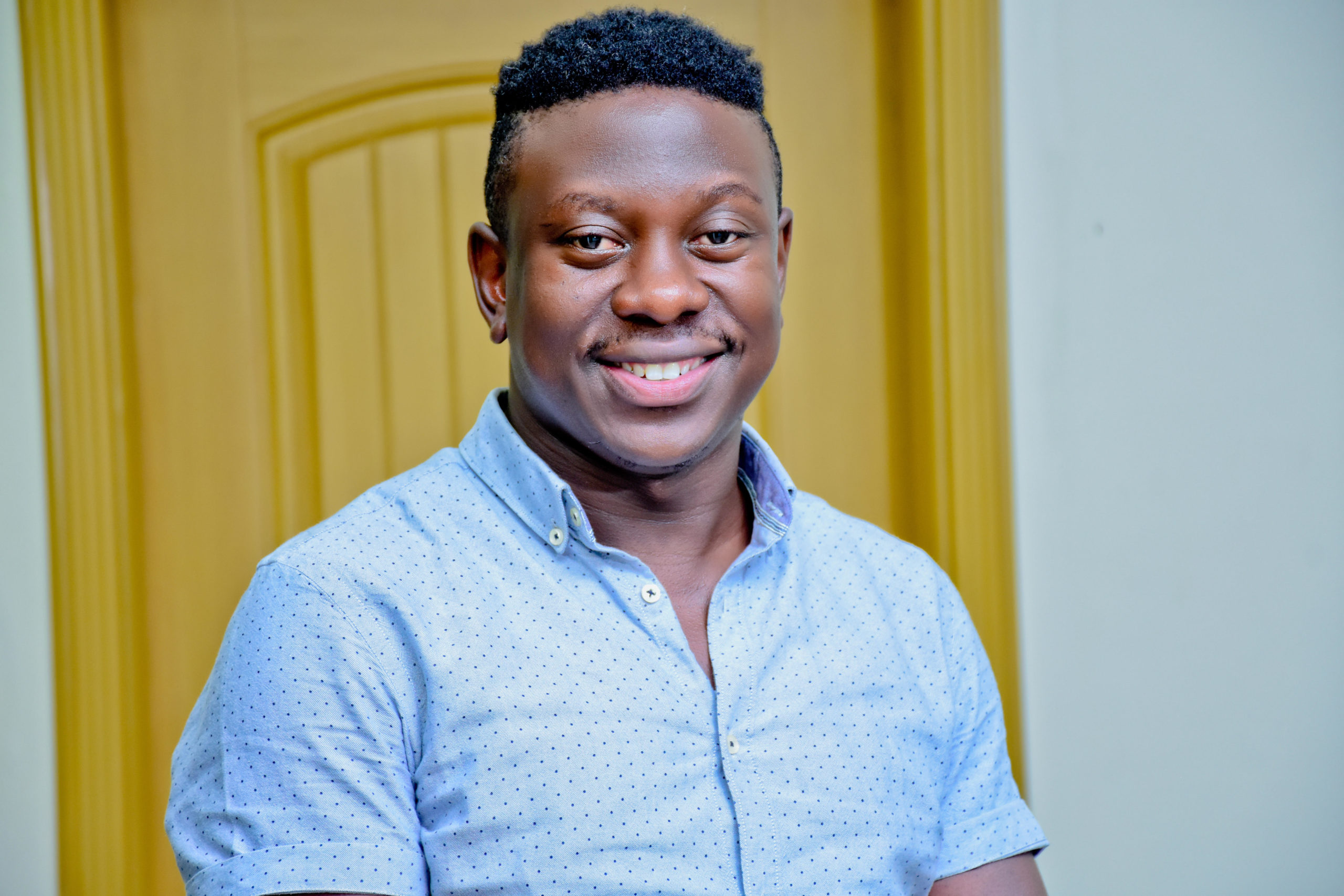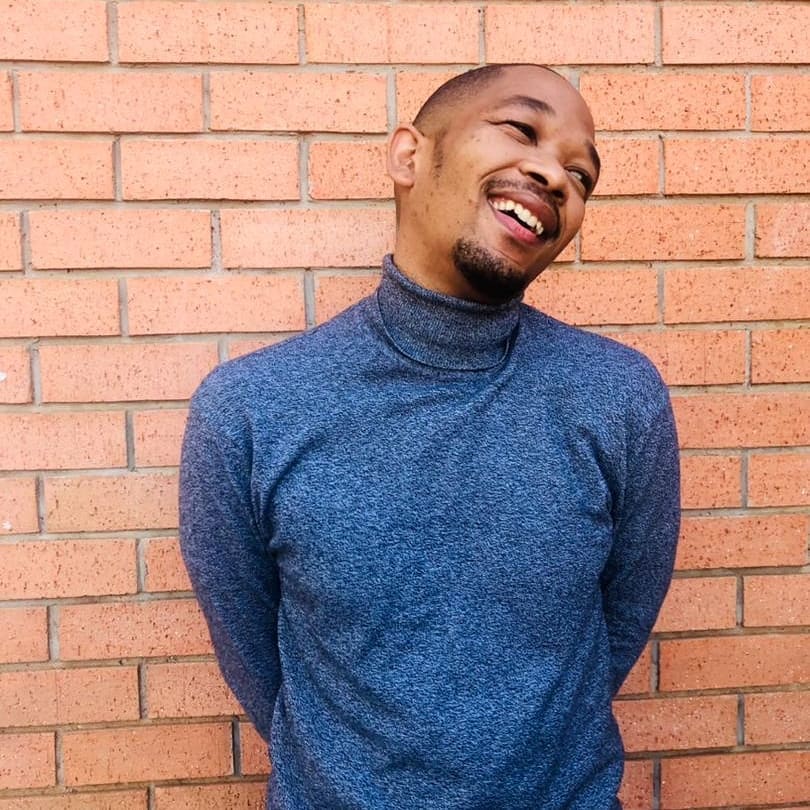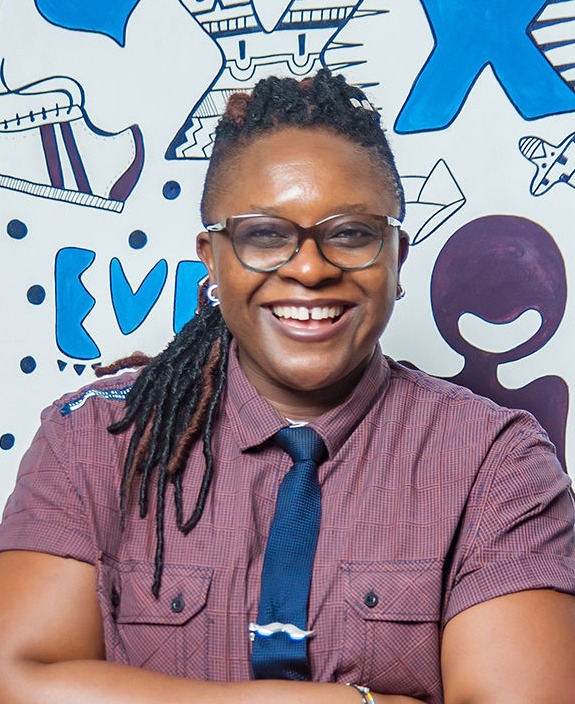MAVERICK LIFE
Fighting homophobia: ‘We must work to change hearts and minds, because changing the laws is not enough’

State-sponsored homophobia is still statutory in at least 32 African countries - the need to strengthen pan-African solidarity in the struggle for LGBTQI+ equality was at the core of the biennial PAI conference, held in August 2021.
“I remember when the law was passed. I came out onto my balcony and saw primary school students with their hands on one another’s shoulders walking down the street to their school shouting: ‘Fourteen years! Fourteen years! Fourteen years!’ It was very shocking because it was three days after the law was passed. It meant that even young people had been told that holding hands with someone of the same sex in public meant 14 years imprisonment. It was very disheartening.” – Akudo Oguaghamba, Nigerian LGBTQI+ activist
A thousand LGBTQI+ delegates from all five regions on the African continent shared lived experiences and their aspirations for a new world at Pan African ILGA’s first virtual conference held at Constitution Hill in August 2021.
State-sponsored homophobia is still statutory in at least 32 African countries.
“As long as one of us is not free, all of us are not free,” Edwin Cameron, a former justice of the Constitutional Court, said on the opening panel.
The biennial PAI conference was due to be held in Ghana in 2020 but had to be postponed because of Covid-19 and a virulent homophobic backlash, which culminated in a draconian bill, which not only criminalises LGBTQI+ people, but human rights organisations, funders and individuals who support their cause.
Under the banner “Reclaiming our Past – Defining our Future”, speakers from Benin, Cameroon, Togo, Uganda, Zimbabwe, Zambia, Malawi, Swaziland, Botswana, Egypt, Sudan, Kenya, the DRC, South Africa, and many other African countries shared their narratives, dispelled the myth that homosexuality is a colonial import, and resolved to strengthen pan-African solidarity in the struggle for LGBTQI+ equality.

Richard Lusimbo. Image: Supplied
Pan Africa ILGA Programmes Manager Richard Lusimbo moderated a panel on the theme “Decriminalisation: Within and Beyond the Law”.
“We need to listen to each other and see how to move forward,” he said. “What we have is a cocktail: we see progress and also stagnation and lots of laws that still discriminate. But we also see countries that have evolved like Angola and Mozambique, where there is political will and momentum; where parliaments have worked hand in hand with communities, and laws have been repealed.
“When a society is so angry and full of rage, it is always the most vulnerable that are affected – women and children, queer people – and we are sitting in that dilemma as a country”
“There have also been opportune moments, for example in Sudan, where the revolution led to a shift in leadership and a shift in looking at human rights, so the death penalty for LGBTQI+ persons was dropped, although the penal code remains in place. We can learn from these experiences.”

Bradley Fortuin. Image: Supplied

Oguaghamba Akudo. Image: Supplied
Speakers from Botswana (Bradley Fortuin), Nigeria (Akudo Oguaghamba), South Africa (Jabu Pereira) and Uganda (Dr Frank Mugisha) told the audience about the criminalisation and decriminalisation of LGBTQI+ people in their countries and how it is being challenged.
In South Africa’s constitutional democracy, which remains a beacon of hope for LGBTQI+ people everywhere, hate crimes against transgender people and black lesbians has escalated in the past few years, but as Pereira pointed out, inequality in South Africa is embedded in toxic masculinity and intersections between class and poverty.
“When a society is so angry and full of rage, it is always the most vulnerable that are affected – women and children, queer people – and we are sitting in that dilemma as a country,” he said.
Nigeria is a highly conservative country of about two hundred million citizens. Before the Same-Sex Marriage Prohibition Act came into force in 2014, same-sex conduct was criminalised under the penal code and by Sharia (law). The act prohibits cohabitation of same-sex sexual partners, bans public displays of affection, imposes a 10-year sentence on anyone who frequents gay clubs and other social organisations, and forbids allies from supporting LGBTQI+ people. Punishments range from 10 to 14 years’ imprisonment.
After the law was enacted, LGBTQI+ people ran away and hid for fear of being stigmatised or being held up as an example by state actors; in addition, sexual and physical violence against LGBTQI+ people and heterosexual women increased, Akudo Oguaghamba, who belongs to a lesbian solidarity group, said. Mental health had been badly affected by fear and stigmatisation. “You feel violated.”
At first, the LGBTQI+ community was crushed into invisibility. LGBTQI+ activities happening in other countries, online and physically, intensified their longing to “celebrate our diversity and our love”, Oguaghamba said. “But we can barely step out and say, ‘this is who I am, I am a queer person’, without getting a negative backlash.”
More recently, the LGBTQI+ community has become more visible, with the attitude that: “This law is the one bullet that the government had against us and once they used it, they did the worst that they could. We are the walking dead. We are already in a situation that hates us, so we are saying: Even though the law has created clauses and platforms for people to hunt and kill us, it has also motivated us to come out, to organise more, to show up.”
The LGBTQI+ community in Nigeria was lobbying against discrimination and for the right to exist in safe spaces. When the law was enforced people were not yet campaigning for same-sex marriage. By calling it the Same-Sex Marriage Prohibition Act the government spoke to the hearts and minds of the majority of Nigerians who are ultra-conservative and very religious. Marriage in Nigeria is considered sacred. Divorce is an “atrocity”, Oguaghamba said.
“The government found a way to speak to Christians, Muslims, atheists, Yoruba, Hausa, Igbo, and all the different tribes in Nigeria, because marriage is sacred for all of them,” she said.
In a landmark high court ruling in Botswana in 2019, homophobic legislation was overturned. The LGBTQI+ community had made considerable strides in raising awareness and creating partnerships and alliances with stakeholders and individuals at the time, with the aim of challenging Section 164 of the Penal Code.
“Even though we made progressive gains in the courtroom, there is still the battle that we need to fight in society, and this includes fighting perceptions and attitudes towards LGBTQI+ individuals”
Lesbians, Gays and Bisexuals of Botswana was formed and began to lobby for law reform and challenge other sections of the Penal Code that exclude and sideline LGBTQI+ individuals.
And yet, rather than eliminating homophobia, the high court ruling led to an increase in hate crimes against LGBTQI+ individuals: gay men were killed; lesbian women were raped, and even in the school environment there was a backlash against LGBTQI+ students and teachers.
“Even though we made progressive gains in the courtroom, there is still the battle that we need to fight in society, and this includes fighting perceptions and attitudes towards LGBTQI+ individuals,” Fortuin said.
Rapes and killings were perpetrated in defence of the Penal Code, which was the cornerstone that fuelled stigma and exclusion of sexual and gender minorities. “A lot of our work is evidence-based work around this,” Fortuin added.
The positive spin-off of the ruling has been an increase in LGBTQI+ individuals documenting their narratives; more positive reporting in the media; the formation of new organisations to advocate for specific rights, and increased access to health facilities.
The government of Botswana has subsequently indicated that it is appealing against the entire high court judgment. Legal processes have been delayed because of Covid so no date has been set for the court hearing.
In Uganda, sodomy laws left behind by the British have been the drivers of laws such as the Sexual Offences Bill. Arrests, the closure of workshops, the raiding of events and shelters, forced HIV tests and anal examinations, are part of the atrocious humiliation LGBTQI+ people are subjected to and, according to Dr Frank Mugisha, blackmail and extortion is part of the mix.
“Uganda has been a playing field for the extreme conservative groups that have influenced our economic and political culture,” he added, pointing out that the preamble and context of the legislation is very similar to the law the Ghanaian government aims to introduce.
Extreme conservative groups, Mugisha said, “have money, power, influence and political friends in Africa who roll out the red carpet for them and offer a platform for them to formulate these laws”.
LGBTQI+ people bombarded by the narrative “paraded and peddled” by the conservative groups, start questioning their sexuality, said Mugisha. Fear of society, fear of being outed and self-stigma had resulted in an increase in suicides and mental illness. The influence of disapproving religious leaders had contributed to LGBTQI+ people of faith stigmatising and marginalising themselves, resulting in extreme trauma.
The story promoted by conservatives is that LGBTQI+ people are after their children, and since 50% of the population is under the age of 16, this contributes to fear and hatred as well as political scapegoating of LGBTQI+ people, which is used by all political factions.
“We have documented so many cases where, when anti-gay legislation is being discussed, cases of insecurity, violence and social exclusion increase, as well as the denial of services and discrimination against LGBTQI+ people who try and access services,” Mugisha said.
Gains in Uganda include visibility, dialogue with a spectrum of stakeholders, and some training of the police and the judiciary. “If you bring legislation that is asking for the hanging and murder of gay people just because of who they choose to love, there is going to be reaction from our bilateral international partners, including civil society. And that creates a dialogue,” Mugisha said.
The Ugandan LGBTQI+ community has had some legal triumphs in the lower courts and magistrates’ courts and been able to change some policies within the ministry of health.
Significantly, the movement successfully challenged American evangelist Scott Lively in court because of his influence on the wording and sentiment expressed in anti-gay legislation. Ongoing support from civil society organisations is indispensable.
Drawing together key strands of the debate, Lusimba painted a picture of progress followed by challenges, with South Africa remaining the most significant lasting gain, legally speaking; and yet, here too, with the sexual and gender-based violence pandemic that has spread in the country, it is clear that progressive laws don’t change social behaviour and attitudes and change has to happen at all levels. “Patriarchy remains one of the biggest remaining challenges,” he said.
In another session with the theme “Looking for a Place Called Home”, LGBTQI+ people who have fled their countries in search of sanctuary elsewhere, shared their experiences of rape, violence, prejudice, misuse of power and religious bigotry.
“I can’t work without papers, Not even the church will employ me because I don’t have proper documents. My choices are sex work or suicide.”
Annemarie, who fled Uganda for Kenya said: “Homophobia is everywhere, wherever we go. Yes, I fled from Uganda to Kenya, but it’s worse here. The authorities responsible for your protection don’t care at all. You go to the police to report that you have been attacked and you get told, ‘you are a woman, a woman is supposed to have a man’.”
Gilbert, who also fled to Kenya said: “People take the law into their own hands. They attack LGBTQI+ people believing they are doing a service to the government and its laws. You are put in a camp and there is no protection.”
Tiara, a transgender person who fled to the US, recalled her personal experience: “When you get here there is a queue. Some asylum seekers have been waiting for eight years. I have been here for five years. They will try and get you to go back home, or they will hold you in immigration detention centres for as long as they can, where there is no guarantee of access to healthcare. They now have a new system of surveillance for people they release temporarily. You must wear an electronic tag, so they are able to see where you are. This is how they police black queer immigrants. It’s a different kind of trauma and oppression.”
Talent, an Anglican priest who fled Zimbabwe for South Africa, added: “Home Affairs Marabastad (Asylum seekers & Refugees Resource Center) has been closed since I arrived in South Africa, up until this day. I can’t work without papers. Not even the church will employ me because I don’t have proper documents. My choices are sex work or suicide.
Mugisha said: “As we work towards decriminalisation, we need to get into positions of influence so that we can sway political capital and create security for LGBTQI+ people.
“We must also work to change hearts and minds, because changing laws is not enough.” DM/ML
















 Become an Insider
Become an Insider
Africans need to wake up and realize homophobic laws are all legacies of colonialism. Even if they were not, it’s simply not moral to deny individuals their right to live a free and happy life. Good luck to our LGBTQI brothers and sisters still struggling on the African continent and elsewhere <3